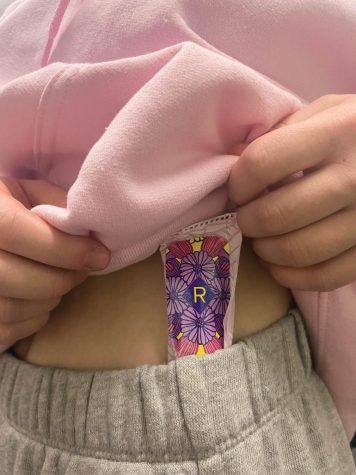Hurtful but Human
November 5, 2021
A hand shoots up in class, and the teacher calls on them.
“What would you do if the number is outside of the parenthesis?” the student asks.
“Guys, this should be common knowledge at this point,” the teacher says. “Come on. Pay attention. I already went over that.”
The teacher carries on with the lesson while the question remains unanswered and the student feels as if they’ve been left behind by the rest of the class.
Every day, students experience sarcastic, snide remarks from teachers who likely don’t even realize what they’re doing. And it’s these absent-minded jests that make students more apprehensive around teachers.
Many teachers are self-aware of their mistakes when it comes to how they speak with students, and most of those who were guilty of making oblivious snide comments said they regretted it once they realized what they’d done. But even if they’re apologetic, many students said they had experienced the rude statements from the other end, and it left them feeling like they were the issue.
The largest portion of the issue seems to be that teachers, like students, will speak before they can fully think things through.
“We’re all people,” Chemistry teacher Kathy Meyer said.
Meyer said that she never means to say anything to students that may bother them, that, though it may not seem like it, the hurtful statements are often accidental.
“If I did, then I didn’t know I was hurting them,” Meyer said.
Even teachers are human and can let some things slip out from time to time, so a good way to start making yourself more comfortable around teachers is to understand that, like you, they are human and can also make mistakes. Nobody is perfect when it comes to what they say.
Even if some of the comments are accidental or absent minded, it doesn’t always seem like that to the students. Junior Trinity Cook said that when she’s around adults and teachers, she gets anxious. And not for any reason, in particular – she simply said that it’s, “because they’re adults. They’re scary.”
Cook, on a few occasions, has been talked down to by her parents over a few different topics, such as what she knows and doesn’t.
“I feel I know more about schooling than my parents because of my third-grade experience of sitting at the table crying. They think they know how we learn, but it’s changed so much.”
For her, as well as many others, an obstacle seems to be respect. Who do you give instant respect to and should you give it to when they don’t return it? It could be perceived as rude if you don’t instantly respect everyone, but if you’re respectful to people who are repeatedly disrespectful to you, then it could take a toll on your mental health.
One connection that some don’t think to make is that between respect and mental health. If people constantly treat you poorly and disregard you, you won’t want to interact with them. However, if you have to constantly interact with them because of school or work, you’re going to be in a bad mood constantly.
Business teacher Dee Reed said that one way she tries to make her student’s day better is by simply saying good morning. And when she makes snide comments, she instantly regrets it.
“I think I just reacted too quickly,” Reed said.
She said she also understands that teaching style can change the way students go about their day. Reed changed her teaching style to benefit the students more, switching from a strict teaching style to a more flexible style that keeps a curriculum while also allowing some freedom.
“I still keep structure, but the compassion helps,” she said. “Just being kind helps.”
Your words can do more than affect those around you, too. Disrespect can affect your self image as well. People may be less inclined to be friends with you, or they may mirror your attitude back at you.
“Being rude to students doesn’t diminish them, it diminishes me,” Astronomy teacher Roy Miller said.
What you say shows your character significantly, it helps people judge how intelligent you are, how much you care, your mood. So much is based on a few sentences, so why not think them through a little bit longer?
At the end of the day, we all just need to remember that we’re human. What we say matters to not only the people around us but indirectly ourselves. Trust can be broken, days can be ruined, mental health could be affected, all because of a sentence someone didn’t think over enough.
